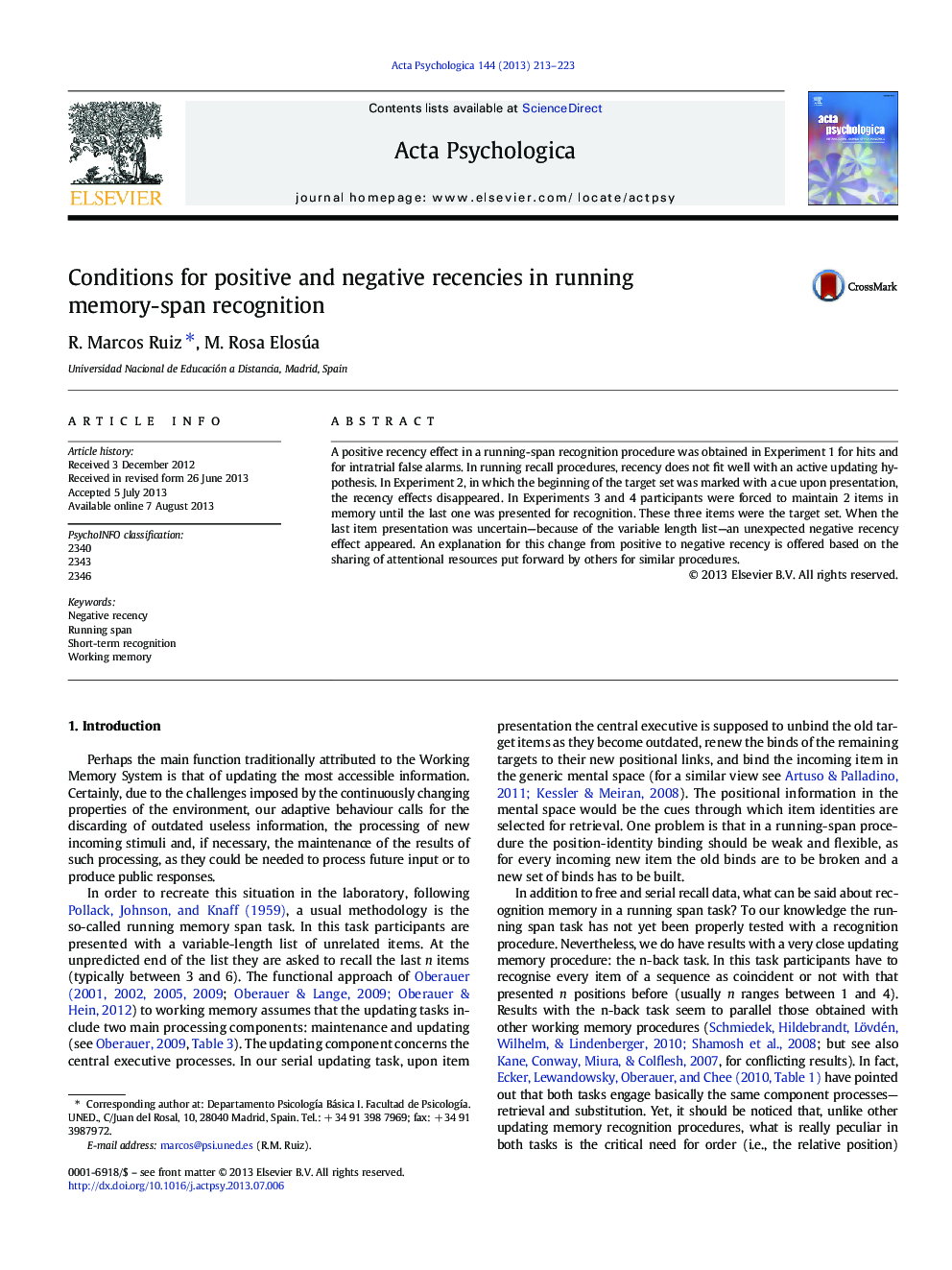| Article ID | Journal | Published Year | Pages | File Type |
|---|---|---|---|---|
| 10453766 | Acta Psychologica | 2013 | 11 Pages |
Abstract
A positive recency effect in a running-span recognition procedure was obtained in Experiment 1 for hits and for intratrial false alarms. In running recall procedures, recency does not fit well with an active updating hypothesis. In Experiment 2, in which the beginning of the target set was marked with a cue upon presentation, the recency effects disappeared. In Experiments 3 and 4 participants were forced to maintain 2 items in memory until the last one was presented for recognition. These three items were the target set. When the last item presentation was uncertain-because of the variable length list-an unexpected negative recency effect appeared. An explanation for this change from positive to negative recency is offered based on the sharing of attentional resources put forward by others for similar procedures.
Keywords
Related Topics
Life Sciences
Neuroscience
Cognitive Neuroscience
Authors
R. Marcos Ruiz, M. Rosa Elosúa,
